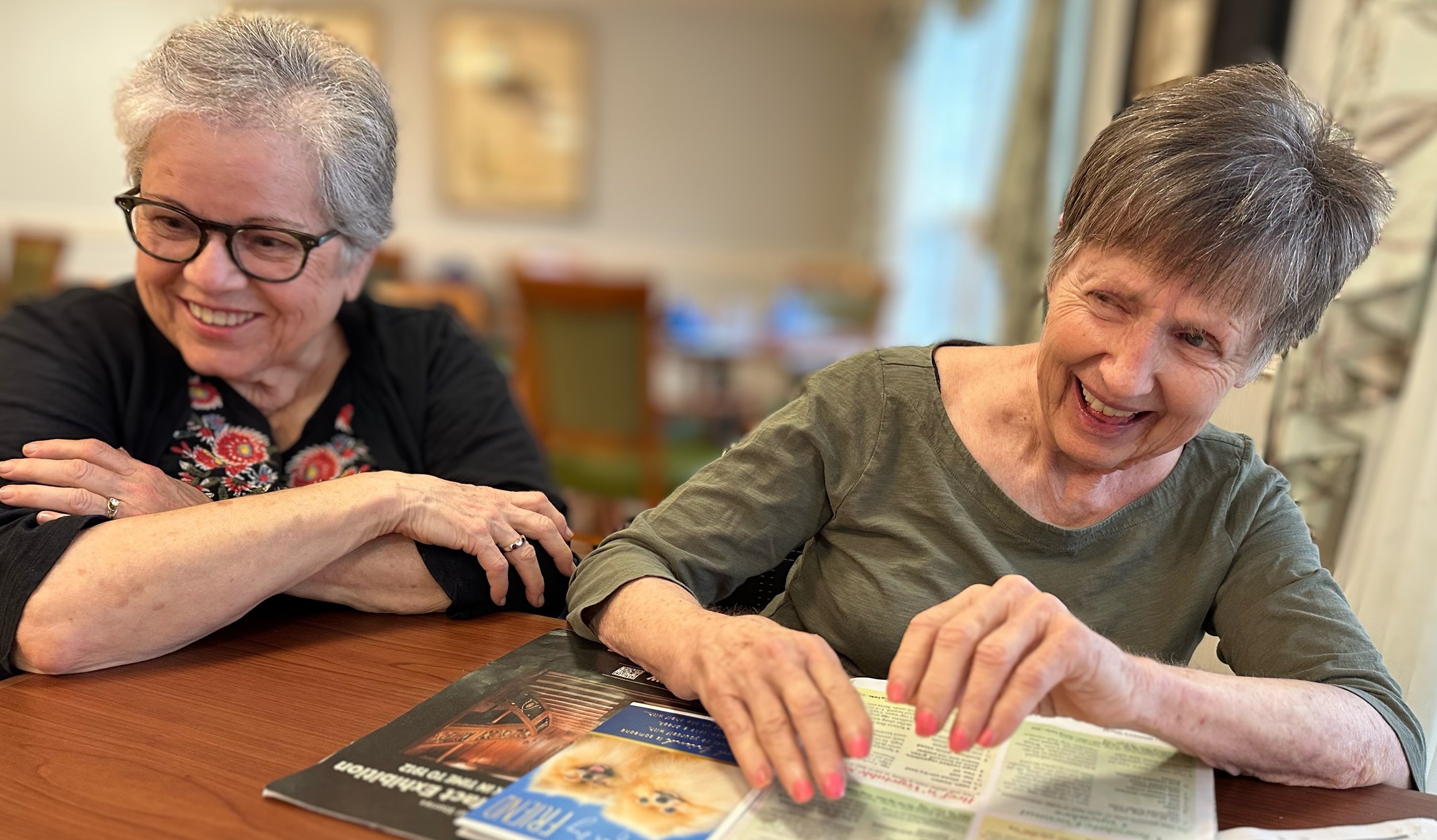‘She’s still in there.’ We love it. But we miss everything lost
After their move to New Zealand 16 months ago, our good friends Bill and Verna Weber returned to the U.S. last month to see doctors and family and friends. And they visited Evelyn.
Their visit with her where she’s living now was wonderful. And difficult.
Nurturing. And sad.
We laughed. And I fought back the urge to weep.
They brought sweet gifts and a lovely card with a heartfelt message about the value of a friend. And Evelyn read it out loud again and again.


She was preoccupied with the card and the magazine at her table, but Verna got her smiling at their image on Verna’s phone for selfie attempts.
I was so, so glad they came to see her. But I had been dreading it.
After about 45 minutes, they left, and Verna whispered to Bill, “I miss my friend.”
Still here?
This is the diabolical dilemma of loving an Alzheimer’s patient. They’re here. But they’re gone.
And that departure comes into sharp focus when it’s seen for the first time by someone dear who’s been away.
The very presence of the sufferer before you intensifies the loss. If Evelyn had died while the Webers were away, we would have hugged and cried when they returned to visit. We would have recounted fond memories. We would have said we miss her.
But missing someone is even more piercing when she’s sitting right in front of you.
It’s a little like a favorite plant you’re struggling to keep alive. Something’s wrong. It once was lusciously green with new growth and beautiful flowers. But now it’s sick. Bare branches. Wilting leaves turning from yellow to brown and then falling to litter the bedroom floor.
It’s there, but it’s nothing like the beauty that brought you so much satisfaction before. You’ve enjoyed it so much you can’t bring yourself to dump it out now. But likely nothing you try will make it healthy again.
Celebrate?
I cope pretty well with what Alzheimer’s has taken. I certainly don’t cry every time I see Evelyn. I work at making her day as interesting or comfortable as possible. She laughs at something I say. She loves an afternoon sweets snack. One of our aides regularly reports to me her correct answers (remarkable!) in the activity-time trivia game. She sings along with hymns and tells us what she likes or doesn’t like. It’s not drudgery or a struggle to be with her.
But the very act of finding little shreds of her to celebrate proves my point. Almost all the ways she blossomed and flourished are gone. We look for something to help us remember all she was and all she meant to us. And then we weep, because there’s so little left.
Brother?
I sat with Katie, her hospice nurse, one morning last week as she chatted with Evelyn in between taking her pulse and blood pressure. Soon she played a You Tube video of a fresh, new rendition of “Amazing Grace,” sung by a smiling acapella chorus. “We always end with this,” Katie said. As Evelyn fiddled with a fidget cloth in front of her, she sang along with some of the phrases.
When it was finished, Katie asked her, “What’s your name?”
Evelyn looked up. “Evelyn Taylor,” she said slowly, certainly.
“What’s this guy’s name?” Katie asked, and without pause Evelyn said, “Mark Taylor.” Next question: “Who is he?” Silence. “Who is he to you?” Still no response. “Is he your son?”
Evelyn looked up again. She knew the answer. “He’s my brother,” she said.
We laughed, and Katie said, “There’s still something in there.”
Yep. Not enough to rekindle any part of what we once had together. But too much to ignore.
So we who love her, as well as those charged with her care, don’t give up. We continue helping and feeding and combing and singing and reading and watching her read. She’s there, a little part of her at least. And we’re not leaving.



